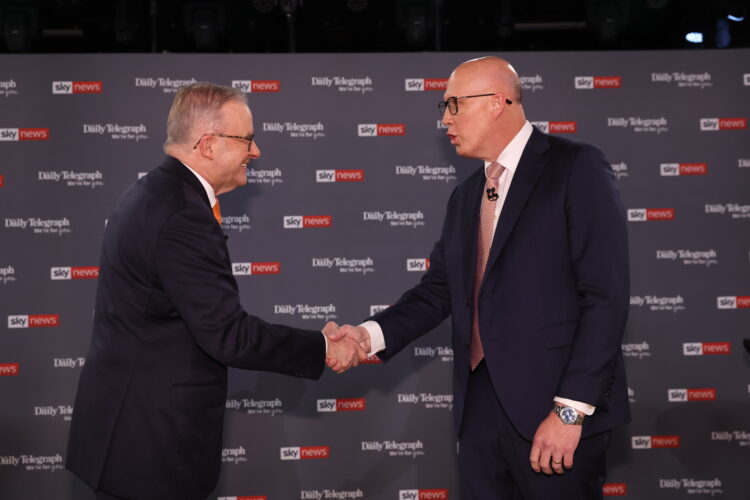Good night – see you tomorrow? (After we all scrub our eyes and ears of that debate)
Peter Dutton press conference
Peter Dutton is trying to defend why he won’t support Labor’s tax cuts (in fact he has promised to repeal them) while also talking about a cost of living crisis and only putting his fuel excise cut policy in for a year. Which is a pretty tight line to walk and one entirely of Peter Dutton’s creation.
The tax policy that Mr Albanese’s thought about and won’t start for 15 months is not going to provide the support, the structural change, that we need to fix this problem.
He then moves on to the gas policy:
And the gas for Australians’ policy is going to provide that short- to medium-term relief. The next part of our plan, as you know, is to bring in a zero-emissions technology being used by 19 of the top 20 economies in the world.
The only reason the government’s opposed to nuclear energy is because they’re worried about Green voters in inner city Sydney and Melbourne, and they’re happy to hang the rest of the country out to dry. So we have a short-term plan, we have a medium-term plan, and we have a longer-term plan which will get this country back on track. It is about economic management, and it’s only through good economic management that we can deal with what is coming at us from the United States, from China, from the rest of the world in relation to tariffs.
All of that is going to be a huge economic shock. The Treasurer’s already talking about a recession under Labor in this country. I want to make sure that we can help families and, unfortunately, the bad decisions of this government over three years have really left people in a very difficult position. Australians can’t afford three more years of Anthony Albanese.
A big-spending Labor-Greens government would mean higher interest rates for Australians, as well as higher electricity and gas prices. And that’s not something that we’re going to tolerate.



